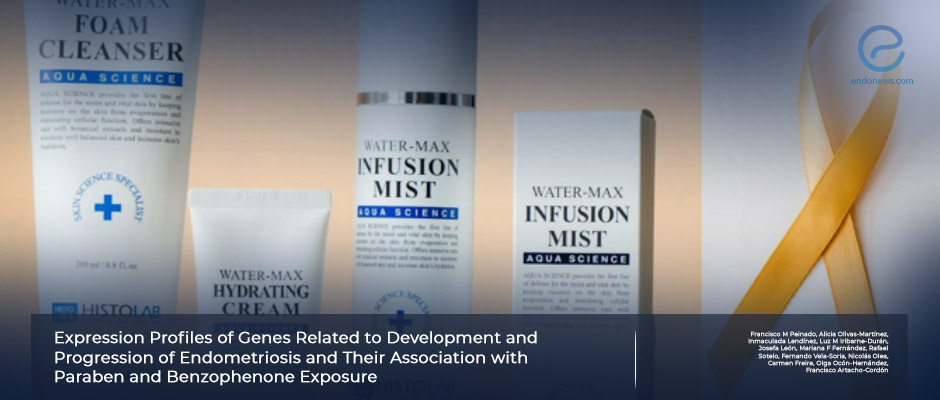Study Sheds Light on How Parabens and Benzophenones May Be Linked to Endometriosis
Feb 19, 2025
Paraben and benzophenone exposure may alter the expression of genes associated with the development and progression of endometriosis.
Key Points
Highlights:
- Paraben and benzophenone exposure may be linked with altered expression of genes involved in endometriosis development.
Importance:
- The mechanism of how endocrine-disrupting chemical exposure might affect cell-signaling pathways associated with endometriosis has been studied.
- Parabens and benzophenones are chemicals found in many cosmetics and personal care products.
What’s done here:
- This is a cross-sectional study on 33 women with endometriosis.
- The expression of 23 genes associated with cell-signaling pathways known to be involved in of endometriosis endometriosis development and progression was assessed.
Key results:
- 52.2% of the genes were expressed in over 75% of endometriotic tissue samples.
- 17.4% of the genes were expressed in 50–75% of endometriotic tissue samples.
- Exposure to certain paraben and benzophenone congeners was associated with the expression of key genes for the development and proliferation of endometriosis.
- Genes associated with the development and progression of endometriosis were expressed in most endometriotic tissue samples.
Limitations:
- The sample size was quite small limiting the statistical power.
- The combined effect of parabens and benzophenones as well as other endocrine-disrupting chemicals were not assessed.
Lay Summary
Exposure to parabens and benzophenones may be linked to the altered expression profile of genes involved in cellular pathways associated with the development of endometriosis, according to a new study published in the International Journal of Molecular Sciences.
“Given the novelty of these results, further studies with larger sample sizes are warranted in order to confirm the impact of human exposure to [endocrine-disrupting chemicals] on the pathophysiology of endometriosis,” the authors of the study said.
Parabens and benzophenones are chemicals found in many cosmetics and personal care products. In vitro and in vivo studies confirm that they exhibit estrogenic effects, supporting their role in endometriosis development.
In order to explore the potential effect of chemicals that disrupt the endocrine system like parabens and benzophenones on the pathogenesis of endometriosis, a team of researchers led by Dr. Francisco Artacho-Cordón from Instituto de Investigación Biosanitaria de Granada in Granada, Spain, conducted a cross-sectional study in 33 women with endometriosis.
The researchers assessed the expression of 23 genes related to cell-signaling pathways that are known to be involved in the development and progression of endometriosis such as cell adhesion, invasion, migration, inflammation, angiogenesis, cell proliferation, and hormone stimulation in the endometriotic tissue obtained from the women. They also measured the concentration of methyl-, ethyl-, propyl-, and butyl-paraben, as well as benzophenone-1, benzophenone-3, and 4-hydroxy benzophenone in the urine of 22 of the women.
The results showed that more than half (52.2%) of the genes that were assessed were expressed in more than 75% of endometriotic tissue samples. Furthermore, the expression of 4 genes (17.4% of all genes tested) was expressed in 50–75% of samples.
Exposure to certain paraben and benzophenone congeners was associated with the expression of key genes for the development and proliferation of endometriosis.
Research Source: https://pubmed.ncbi.nlm.nih.gov/38069001/
endometriosis development endometriosis progression paraben benzophenones endocrine-disrupting chemicals gene expression

